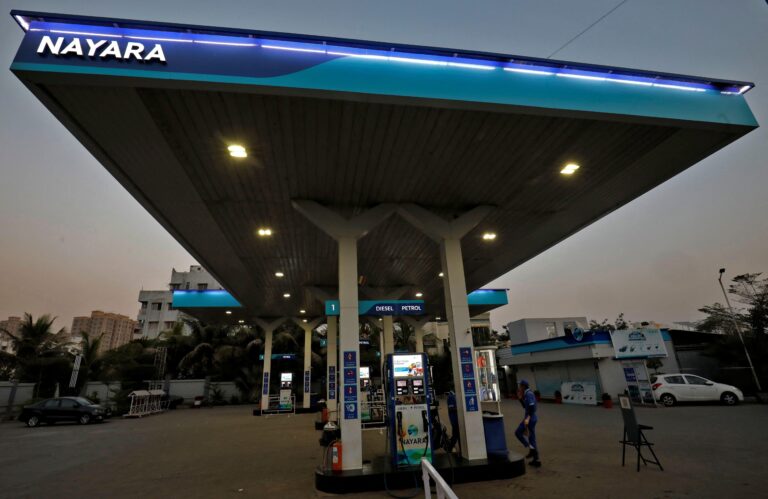Indian oil refining company Nayara Energy, grappling with the impact of international sanctions, has entered discussions with government officials to secure support aimed at sustaining its operations, Reuters reports. The talks come amid growing concerns over the company’s ability to maintain its refining output and supply chains in the face of mounting external pressures. As one of India’s key refiners, Nayara’s ongoing challenges highlight the broader implications of geopolitical tensions on the country’s energy security and market stability.
Nayara Energy Engages Government Amid Sanctions to Safeguard Refinery Operations
Nayara Energy has initiated active discussions with Indian government authorities to navigate the operational challenges posed by recent international sanctions. These measures, which have impacted the global oil sector, threaten to disrupt the refinery’s supply chain and financial transactions. Sources close to the talks reveal that Nayara is seeking regulatory support that could include easing import restrictions, facilitating alternative payment channels, and securing uninterrupted access to crude oil supplies crucial for maintaining production levels.
Industry experts highlight a few critical areas of focus in Nayara’s agenda:
- Streamlining import and export procedures to avoid logistical delays.
- Access to strategic reserves to buffer against supply shocks.
- Financial safeguards aimed at stabilizing cash flow amidst banking restrictions.
These measures aim to prevent disruption not only to Nayara’s refinery but also to India’s broader energy security framework. The government’s engagement signals a proactive approach to safeguarding key energy infrastructure under sanction-related stress, balancing geopolitical considerations with domestic energy demands.
Challenges Faced by Indian Refiners Under Global Sanctions and Their Strategic Responses
Indian refiners, especially entities like Nayara Energy, have found themselves navigating a highly turbulent landscape due to international sanctions affecting their access to critical raw materials and financial channels. These sanctions have resulted in disrupted supply chains, increased costs for procurement, and limited access to global financing – factors that collectively strain operational viability. Compounding these issues, refiners face the challenge of balancing compliance with sanctions while maintaining steady fuel production to meet domestic demand, often pushing them to seek creative avenues to circumvent logistical bottlenecks.
- Supply Chain Diversification: Refiners are actively exploring alternative sources of crude oil, including domestic and allied markets, to reduce dependence on sanctioned regions.
- Government Collaboration: Companies like Nayara have initiated high-level talks with the Indian government to obtain policy support, financial assistance, and streamlined regulatory approvals.
- Financial Restructuring: Efforts are underway to renegotiate debt and secure credit lines from non-traditional banking institutions that are less exposed to sanction risks.
- Technological Upgrades: Investments in advanced refining technologies aim to maximize output efficiency and reduce wastage under constrained resource scenarios.
| Challenge | Strategic Response | Impact |
|---|---|---|
| Restricted Oil Imports | Diversification of supply sources | Enhanced supply security |
| Limited Financing Options | Government negotiations & alternative credit lines | Maintained liquidity for operations |
| Operational Disruptions | Technological optimization and cost control | Improved refining margins |
Policy Measures Recommended to Support Domestic Energy Security and Industrial Stability
To mitigate the impact of international sanctions on key energy players, it is imperative that policymakers implement targeted interventions ensuring continuity and resilience in domestic fuel supply chains. Proactive measures such as enabling streamlined credit access to refiners, incentivizing indigenous crude exploration, and fostering partnerships with non-sanctioning countries can create buffers against external pressures. Additionally, regulatory flexibility in procurement and export policies would allow refiners like Nayara to navigate geopolitical constraints without compromising operational viability.
Key strategic recommendations include:
- Provision of emergency liquidity support frameworks to sustain refinery operations amid financial restrictions.
- Encouraging investment in refining capacity upgrades to improve efficiency and reduce dependence on volatile imports.
- Implementing tax rebates or subsidies for domestic industrial users reliant on uninterrupted fuel supply.
- Strengthening India’s strategic petroleum reserves to serve as a safety net during supply disruptions.
| Policy Area | Recommended Measure | Expected Benefit |
|---|---|---|
| Financial Support | Emergency credit lines for refiners | Operational continuity despite sanctions |
| Supply Chain | Facilitated crude imports from alternate sources | Reduced dependence on sanctioned entities |
| Infrastructure | Investment in refinery modernization | Enhanced processing efficiency |
| Strategic Reserves | Expansion of petroleum stocks | Buffer during emergency supply shocks |
The Way Forward
As Nayara Energy navigates the challenges posed by international sanctions, its ongoing discussions with the Indian government underscore the broader complexities facing the country’s energy sector amid geopolitical tensions. The outcome of these talks will be closely watched by industry stakeholders and policymakers alike, as India seeks to balance energy security with adherence to global regulatory frameworks.




